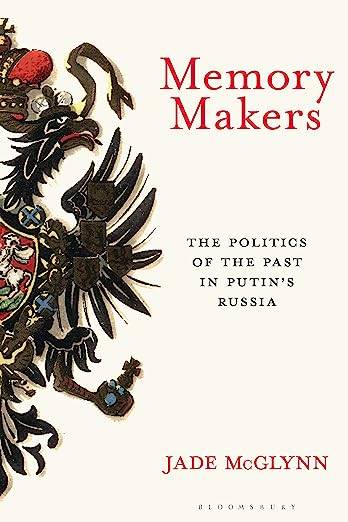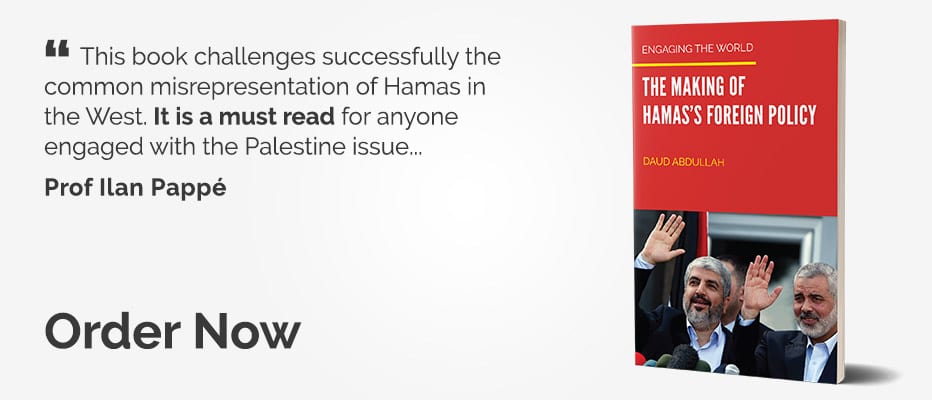Historical memory is at the forefront of Russia's wars in Ukraine, Syria and elsewhere. However, this historical memory is not about things in the past that actually happened, or real history, it is a constructed past to fit the Kremlin's objectives. Memory serves in place of ideology to give Russian President, Vladimir Putin, the credibility to enact certain policies and, every day, Russians take it very seriously, asserts Jade McGlynn. Her new book, Memory Makers: The Politics of the Past in Putin's Russia, makes for fascinating reading. Myth becoming memory, while certainly not unique to Russia, there is a centrality to it that makes learning about it key to understanding Russian politics. "Russia will never be at peace with its neighbours until it can be at peace with itself and its history. Russian official and societal obsession with sanitising history, and moulding it into something usable to prove exclusive heroism and victimhood, is fuelled by an insecurity borne of changing ideological regimes and the senselessness of the historical traumas Russia experienced in the twentieth century. The power of these cultural memories is immense and the Kremlin has wielded this power to prepare its nation for war and repression."
The Russian population is constantly being prepared to re-enact their past, as McGlynn documents, large scale military parades, civilians dressing up as soldiers from the Second World War, media reinvoking the 'Great Patriotic War' and the criminalisation of historians writing histories which are seen as either critical of the official narrative or documenting crimes committed by different Russian regimes, all means everyone is fluent in the memory making project. Putin did not invent this, as McGlynn points out. Russia has invoked previous wars throughout much of its recent history, for example, in 1941 after Hitler's Germany invaded the Soviet Union, Russian propaganda compared him, Hitler, to Napoleon and compared their fight to Russia's triumphant war against the French in 1812. Outsiders being evil and attacking 'innocent' Russia is a constant theme in the Kremlin's memory project. When Russia launched a full scale invasion of Ukraine on 24 February 2022, Putin's claims that he was fighting Ukrainian Nazis struck many westerners as random and strange but, to his domestic audience, Putin's claims that the Ukrainians they were fighting were like 'Bandera' [Ukrainian nationalist who is remembered by Russians for his collaboration with Nazi Germany] made perfect sense, as the Kremlin had been psychologically preparing them for it for years. This coupled with another historical myth pushed by the Kremlin which is that Ukrainians are, in reality, Russians and Ukraine does not historically exist – offer powerful emotional reasons for why so many in Russia appear to support the war.
REVIEW: George Orwell and Russia
The way Russia justifies its war in Syria is of particular interest. President Bashar Al-Assad has enacted a wave of extreme repression and violence since the 2011 Arab Spring, is responsible for hundreds of thousands of deaths and is not well liked globally. Before Moscow's 2015 intervention into Syria, most Russians were opposed to any military intervention into Syria to save the Al-Assad regime. But this feeling shifted after the intervention and the use of historical memory offers compelling reasons why. "Media and politicians explained Russian involvement in Syria as facilitating a return to the International order decided at the 1945 post-war Yalta conference." The West's acceptance of Russia's role in Syria was seen as proof of Russia returning to its great power status as McGlynn puts it, "they [the Russians] cared more about how Syria made them look than how Syria itself looked." The Russian media also invoked the Second World War and Russia's victory in it as giving Russia the moral right to interfere in Syria. For the Kremlin, Syria was its centrepiece that turned the theoretical concept of Russia's re-found greatness into a reality.
Memory Makers, which is based on meticulous research with thousands of documents, media and publications being analysed, offers the reader a comprehensive view of how memory functions politically in Russia and can enable important critical research into the political uses of myth-making. McGlynn has very clearly and concisely laid out the various aspects of Moscow's memory politics and its centrality to policy making. The framework used will not only be of interest to Russian scholars, but also to scholars of our regions who are interested in political memory making. It has another importance, too, namely how to understand some of the propagandistic talking points used by the Kremlin to influence opinion across both the West, the East and elsewhere outside its borders. Memory Makers should be required reading for anyone wishing to engage in Russian politics, scholars, journalists, policy-makers alike.



